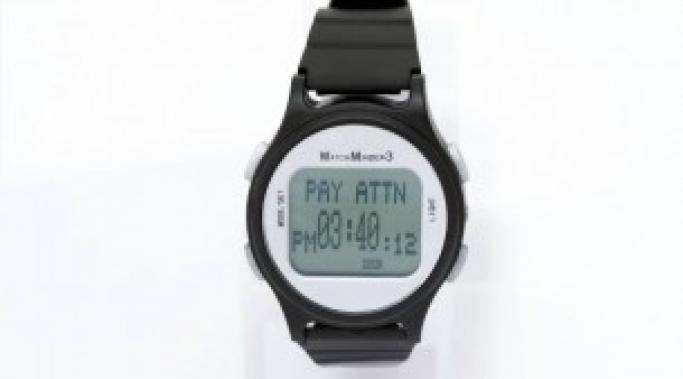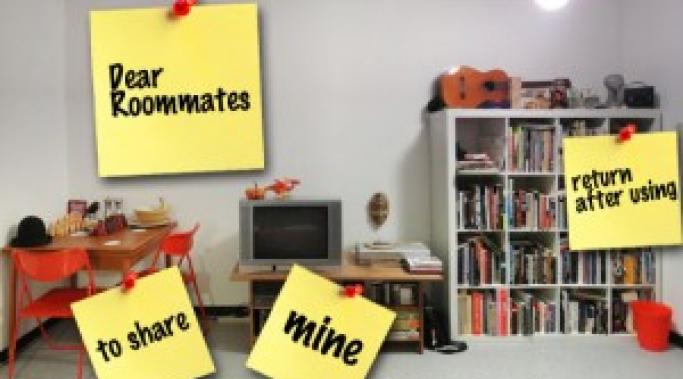Writing this Adult ADHD blog every week for nearly a year has made me slightly cuckoo about my ADHD. In order to write 350+ words every week, I need to be super introspective and think about my disorder regularly and with regards to nearly every aspect of my life. This week, I'm going to talk about the holidays, because that's what's on my mind. How to survive the holidays with Adult ADHD.
ADHD Help
Before I get into the tofu and potatoes of this Adult ADHD Christmas wishlist post, let me apologize to those of you who do not celebrate Christmas or have a Christmas wishlist. I'm sure it can be frustrating to be left out during this season and I know that maybe I stink for being politically incorrect. I do believe that all of the items on the following wishlist, though, could be for any Adult ADHD holiday and that I am in the process of wrapping my family's Christmas gifts and that's why this post is titled what it is.
Adult ADHD is a "point of performance" disorder. We don't have difficulty learning, we have difficulty applying our learning when a situation calls for it. There are tools to help those of us with Adult ADHD to focus better, be more productive and, ultimately, be happier. And, for serious, who doesn't want to be happier?
Before I start talking about how having Adult ADHD can affect being a roommate, I want to say I hope you all have a really great week this week. Mondays can be super hard - you've just gotten over the fact that yesterday was Sunday (maybe you had the ADHD Weekend Blues even) and now you have to start a whole week or school and/or work (my apologies to those of you I am leaving out of this by saying that - those of you who don't work the "typical" workweek). Anyway, have a great week ... now, roommate talk.
I am a sleepy monster. I slept 12 hours on Monday night. I slept 10 hours last night and I could totally take a nap right now. In fact, I might. Or, instead, I might do some warm-up activities to get my body centered, focused and excited all at the same time. I'm takin' 'bout Brain Gym, y'all!
I can still feel the chilly sea breeze on my face as I sat on a chaise lounge chair by the marsh next to my back yard. Little did I know I was beginning a lifelong coping strategy that would help my ADHD well into adulthood.
Memory problems are not owned by those of us who live with Adult ADHD, but our disorder can certainly exacerbate things. For me, to be frank, my ears don't always work too good! That's why I write, write, write. Taking notes is one of my number one coping mechanisms to accommodate for my lack of auditory endurance - aka I drift off when people are talking and taking notes provides both a way to stay on task and a way to review later what the heck my teachers, friends etc were talking about.
Once upon a time, in a land called Bryn Mawr, PA, I was afraid to stand up for my adult ADHD needs. I was first diagnosed my sophomore year and started to receive testing accommodations for my fall semester finals. It was so difficult to accept my adult ADHD diagnosis and even more difficult that I needed something extra to perform at the same level as everyone else. It made me feel less than.
A few months ago, I wrote about “tipping points:”
..a time in people’s lives when the strategies they have been using to compensate for their ADHD challenges no longer seem to be working. This “tipping point” is often experienced along with feelings of overwhelm and chaos. Up until a “tipping point,” people have been able to balance known or unknown challenges with ADHD with strategies they may not have even realized they were using. Up until the “tipping point,” they had been able to adapt and cope well with their symptoms, even going as far as being under the radar for an official diagnosis of ADHD (in other words their symptoms were not interfering with their functioning). But for some reason a life change – it could be a job promotion, relationship change, a school change, or any myriad of different things – renders the current strategies ineffective and over time there is a sense that things are no longer “going well” and in fact, life seems to be falling apart in a big way.
This article really resonated with people. I received many emails from readers stating they had coasted along most of their life, never knowing they had ADHD until they changed jobs or had kids (the overwhelm and chaos that children bring seems to be one of the biggest tipping points). Yet once they read the article, it all made sense- they had ‘tipped over’ and were floundering with no idea why or how to right themselves.
According to Sarah-Jayne Bass, there are a number of barriers to employment faced by people with ADHD including communication barriers and impaired social interactions. While there are numerous individuals with ADHD who have found ways to be successful on the job, there are also many individuals with ADHD who are unemployed, underemployed, or who are what I call "unhappily serially-employed." I place myself in the latter category.
Here we will address the ranks of the unhappily employed, underemployed, and "serially-employed" ADHD worker and provide a few ideas regarding "success" in the workplace.








